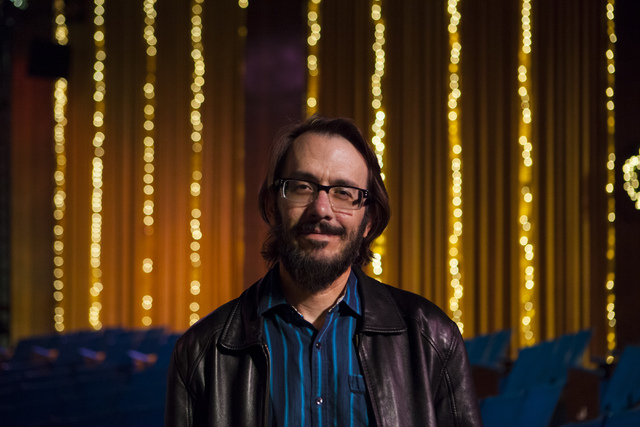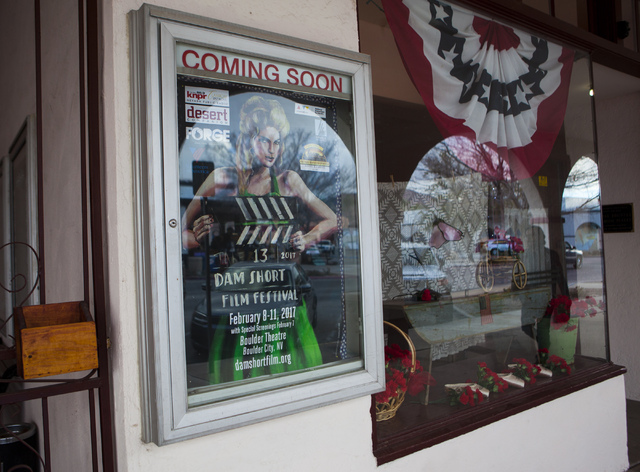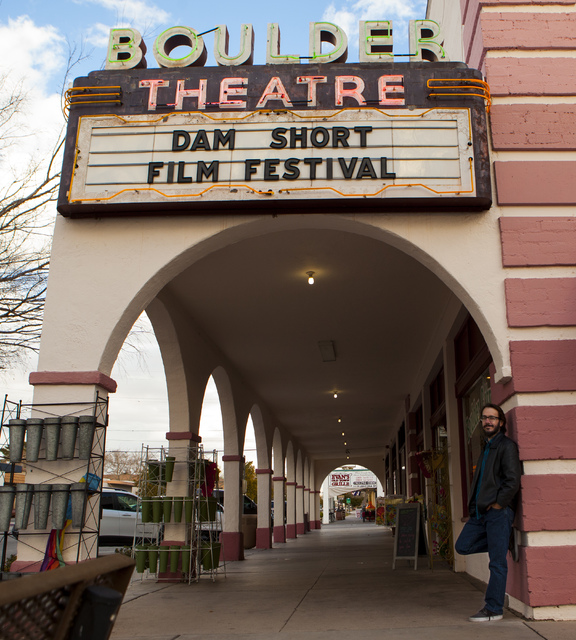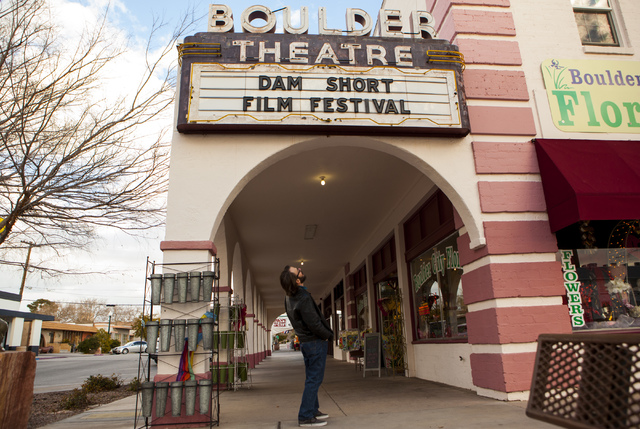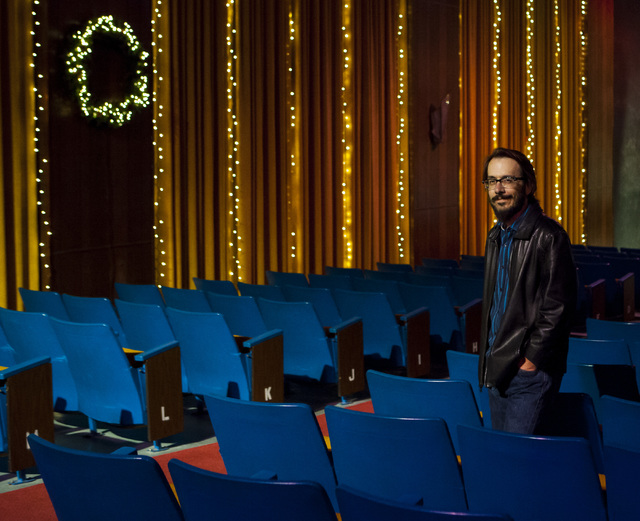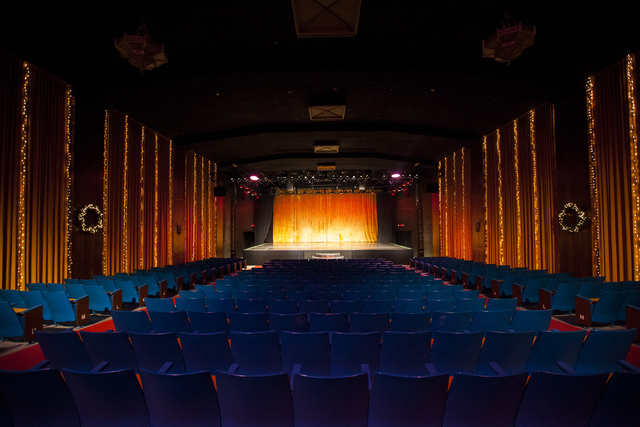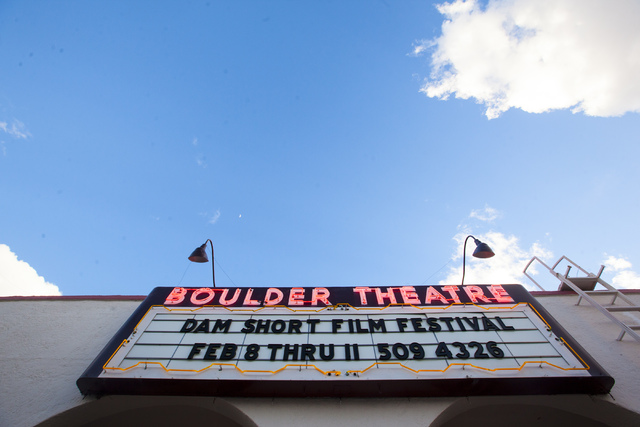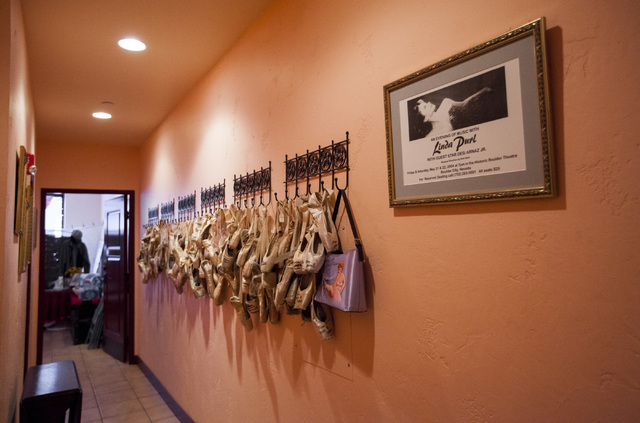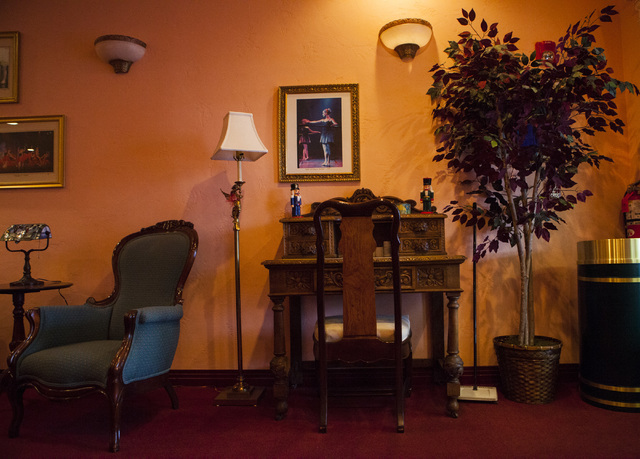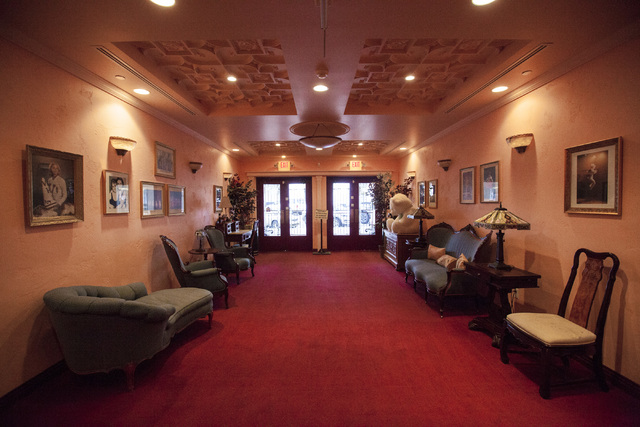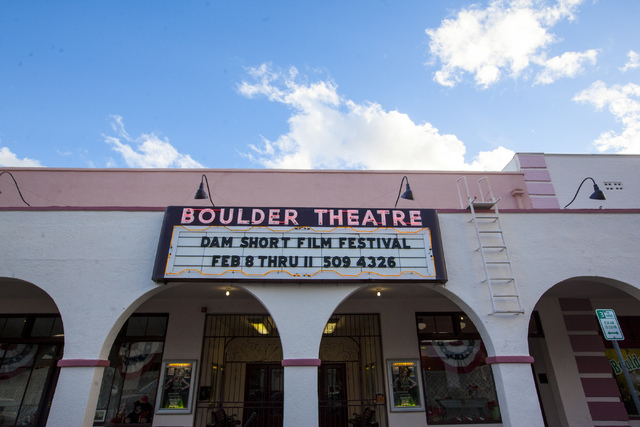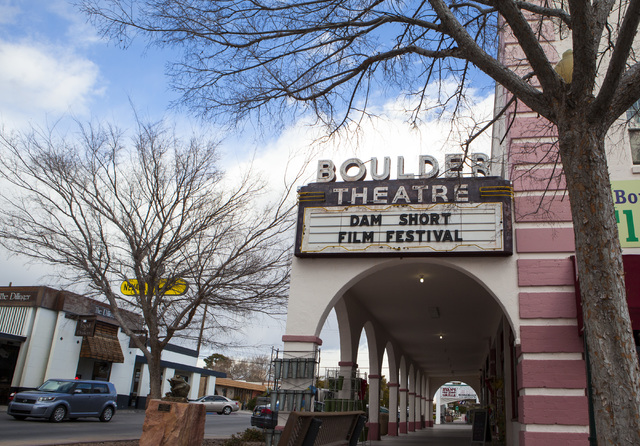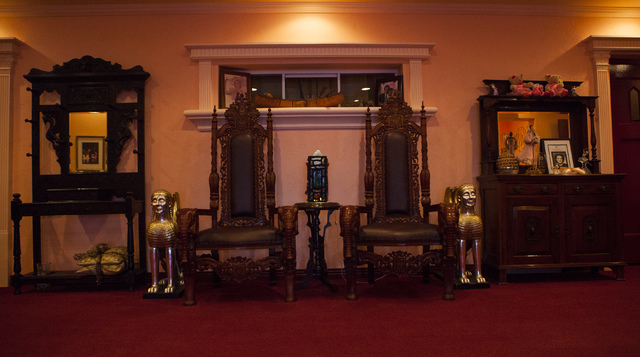Dam Short Film Festival founder builds audience and community
Vegas Voices is a weekly question-and-answer series featuring notable Las Vegans.
Lee Lanier grew up in Ohio, worked in movie production in Los Angeles in the early ’90s and made the transition to computer animation with jobs at PDI/Dreamworks and Disney’s digital division.
But when it came time to settle down, after traveling the world to screen his films at festivals, he and his wife, Anita, moved to Boulder City in 2001.
“We were looking for a small town that was kind of quiet and cute and safe, and someplace a little more laid-back,” Lanier says. “And we liked the Southwest. And, I don’t know, Boulder City just fit the bill at the time.”
In 2005, the Laniers presented the first Dam Short Film Festival at the Boulder City American Legion Hall. Three years later, the fest moved to the historic Boulder Theatre, where it’s grown every year. This year, the festival will screen 124 shorts Tuesday through Saturday. (For more information, including a complete schedule, see damshortfilm.org.)
Lanier, 50, took time out from festival prep to talk about filmmaking, his love of short films and the movie that changed his life.
Review-Journal: So how did you get into filmmaking?
Lanier: I think a lot of people from my generation have the same answer, which is, I went to the theater with my dad when I was 11 years old to see the original “Star Wars.” I was never really into films that much before then, and when I saw it in the theater, it blew me away. So I’m like, “I think I wanna get into filmmaking.” That planted the seed.
RJ: What is it about short films that appeals to you?
Lanier: Short films are a great art form. I think film is kind of the pinnacle of art form anyway because of the complexity. But short films are wonderful because you can really take a lot of chances with short films, and a lot of people can make them fairly easily, especially these days. We get a really broad range of styles and stories.
RJ: What made you decide to start the festival?
Lanier: I went on the festival circuit myself for a number of years. My wife actually joined me, too, at some of these festivals around the world. We both realized that we really like short films, we love festivals. And at the time, this was really early days of the internet. There wasn’t much of a chance to show a short. You showed it at a festival, and it was pretty much gone at that point after a month or two. So that was our opportunity to help bring short films to other people.
RJ: Are you surprised at all by how the community has embraced the festival?
Lanier: It’s a pleasant surprise. There are people who’ve never been to a film festival, so it’s wonderful to see them come to ours and fall in love with that type of event. But we have some really dedicated fans that we almost see every single year, and they’ll talk about a film they saw a year later. So it’s great to see that kind of impact.
RJ: You’re screening the feature “Dealer” on opening night. Is that the first feature that’s been a part of the festival?
Lanier: It is. We figured we could fit it in because it’s kind of an anthology with a number of local filmmakers. It’s a way to support the local team, and it kind of fits into the short films vibe. Tuesday night is kind of an experiment. We’re (showing) music videos and the feature. We haven’t done any of those before.
— DEALER - The Movie (@dealerfilm) May 14, 2016
RJ: Is there traditionally one block that gets the best turnout?
Lanier: All our programs are pretty solidly attended these days, even in the daytime. But the ones that are the largest are Friday night, which is comedy and Nevada filmmakers.
RJ: How important is it to always reserve at least one block for Nevada filmmakers?
Lanier: We’re a community event. Our mission statement is two main things. One is to treat the filmmakers really well. And the other is to present the best films as possible to our community. So we’re aware of our local audiences. And by the same token, we want to support local filmmakers. It’s all part of that local community.
RJ: You’ve made movies that have screened at Sundance, Slamdance and other festivals. Which is more stressful, attending a festival as a filmmaker or hosting a festival for filmmakers?
Lanier: Oh, that’s a tough question. I’ve screened my films in front of a big audience at important festivals, and my palms sweat I got so nervous, especially in the early days. Sundance was pretty nerve-racking. … When they like it, it’s great. But you never know what the reaction’s going to be. The (Dam Short) festival itself is a surprising amount of work. Even though it’s five days, it takes us all year with a staff and (60 or 70) volunteers. It’s just a surprising amount of work.
RJ: Is there any film block that you’re really excited for the audiences to see?
Lanier: It’s hard to choose. I love so many of them. OK, here’s actually one that just occurred to me that’s pretty amazing this year, but not for everyone: It’s our underground block (9:30 p.m. Friday), and there’s a couple of comedies that are so funny but so adult and not appropriate for children. In particular, “The Black Bear” is pretty funny. And “Mulva Lends a Hand” are two that made me crack up alone, just by myself.
Contact Christopher Lawrence at clawrence@reviewjournal.com. On Twitter: @life_onthecouch.
Getting to know: Lee Lanier
What are you currently obsessed with? "I'm obsessed with painting. I've taken up painting the last two years. …Usually sexy women, pinups, things like that."
What's your favorite indulgence? "Hot showers."
What are your hobbies? "Auto restoration. Working on an old muscle car. I have a '73 Mustang Mach 1 that's going through a slow rebuild."
Aside from "Star Wars," what's your favorite movie? "I have a few favorites, a few films I can watch over and over. I love "Mulholland Drive" by David Lynch. And there's a new one out (last year) that I just I obsessed over also. It's called "The Neon Demon" (by director Nicolas Winding Refn). It's kind of like David Lynch meets Stanley Kubrick and they had a child or something."
What's your favorite sport? "I don't do many, but snowboarding. These days I just try to get down to Big Bear once a year."
What are you reading right now? "I'm going through the classics, catching up on the classics I missed. Things like 'Moby-Dick' and Jules Verne, things like that."



